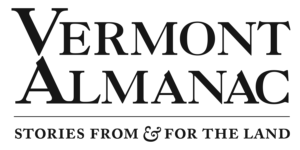Vermont Almanac Welcomes Trevor Mance to the Board
When we make broad statements like humans have been amending soil for millennia, we run the risk of making history seem like one straight line. It also implies that we keep getting better at it, when the truth is much more complicated. If we look directly at the soil, then sure, it was great when farmers in the nineteenth century started amending soil with bonemeal and guano. They were learning that they couldn’t take without giving anything back. But the big picture was awful, with guano mines in the Philippines being worked with slave labor and at least some of the bonemeal a byproduct of a market hunting industry that was driving wild animals to the brink of extinction. Today conventional farming relies on synthetic fertilizer, which is certainly a step up from a human being being whipped in a guano pit, but it still carries its own host of complications. The 10-10-10 pellets many of use — myself include — fertilizes soil without building it, so it’s a short term boost followed by a long-term depletion.
From where I sit, one of the more hopeful trends in the art of amending soil is compost, as we watch, in real time, this endeavor get turned from a backyard pursuit to big business. The whole promise of the industry is built on the common-sensical idea that if we take the food waste out of our wastestream, we can take a CO2-producing waste product and turn it into a CO2-sequestering product that builds soil. And while the history of ag, really the history of capitalism, warns us to be wary of big business, big business needs to be a partner in this if we’re going to make any dent in a global problem.
There are many reasons why we’re excited to welcome Trevor Mance to our board, among them his business acumen and vision. I can vouch first hand for his gifts, since as his older brother, I’ve known him his whole life and all but the first three years of mine. But in the context of the Almanac, it’s great to know someone on the forefront of the compost question. Trevor works for Casella Waste Systems, the largest wastehauling company in Vermont, as their compost operations manager. If he and his team, along with all the other players in the industry, can figure out a way to make large-scale composting logistically feasible and cost effective, then there’s the opportunity for landscape-scale good.

